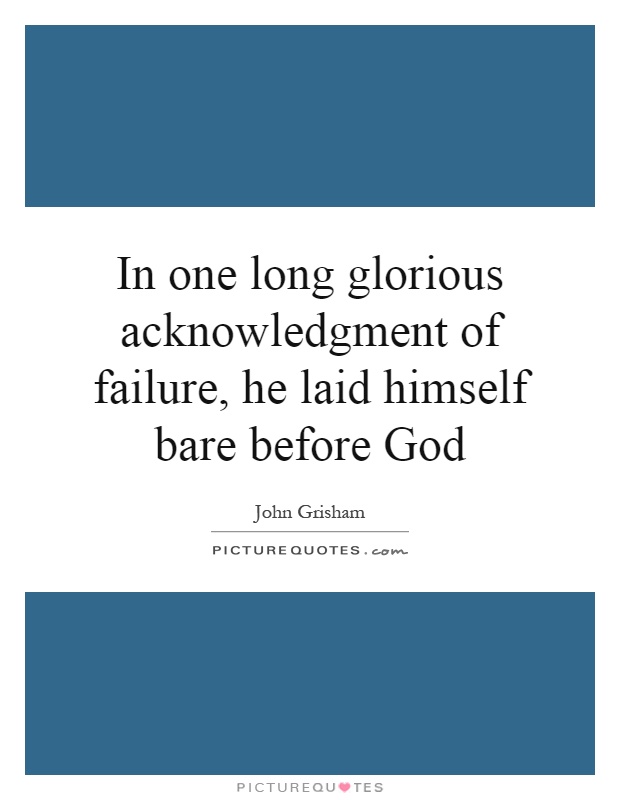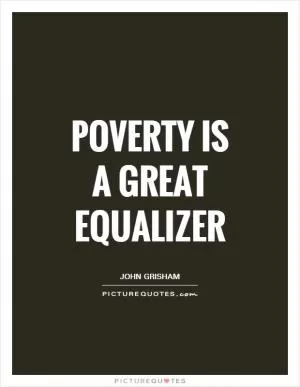In one long glorious acknowledgment of failure, he laid himself bare before God

In one long glorious acknowledgment of failure, he laid himself bare before God
John Grisham is known for his gripping legal thrillers that often explore themes of justice, morality, and redemption. In many of his novels, the protagonist is faced with difficult decisions and must confront their own flaws and failures. One such moment of introspection and vulnerability can be found in the quote, “In one long glorious acknowledgment of failure, he laid himself bare before God.”This quote encapsulates a powerful moment of reckoning for the character, where they come to terms with their mistakes and shortcomings. It is a moment of humility and surrender, as they acknowledge their own fallibility and seek forgiveness from a higher power. This moment of vulnerability is a turning point in the character’s journey, as they let go of their pride and ego and open themselves up to the possibility of redemption.
Grisham’s exploration of failure and redemption is a recurring theme in his work, as he delves into the complexities of human nature and the struggle to do what is right in the face of adversity. The quote, “In one long glorious acknowledgment of failure, he laid himself bare before God,” captures the essence of this struggle, as the character confronts their own failings and seeks to make amends.
This moment of vulnerability is a powerful reminder of the importance of humility and self-reflection in the face of failure. It is a reminder that we are all imperfect beings, capable of making mistakes, but also capable of seeking forgiveness and redemption. In laying themselves bare before God, the character demonstrates a willingness to confront their own flaws and shortcomings, and to seek a path towards healing and reconciliation.
Overall, this quote from John Grisham’s work serves as a poignant reminder of the power of acknowledging our failures and seeking forgiveness. It is a moment of humility and vulnerability that can lead to growth and transformation, as the character confronts their own flaws and seeks to make amends. In this long glorious acknowledgment of failure, the character lays themselves bare before God, opening themselves up to the possibility of redemption and renewal.












 Friendship Quotes
Friendship Quotes Love Quotes
Love Quotes Life Quotes
Life Quotes Funny Quotes
Funny Quotes Motivational Quotes
Motivational Quotes Inspirational Quotes
Inspirational Quotes